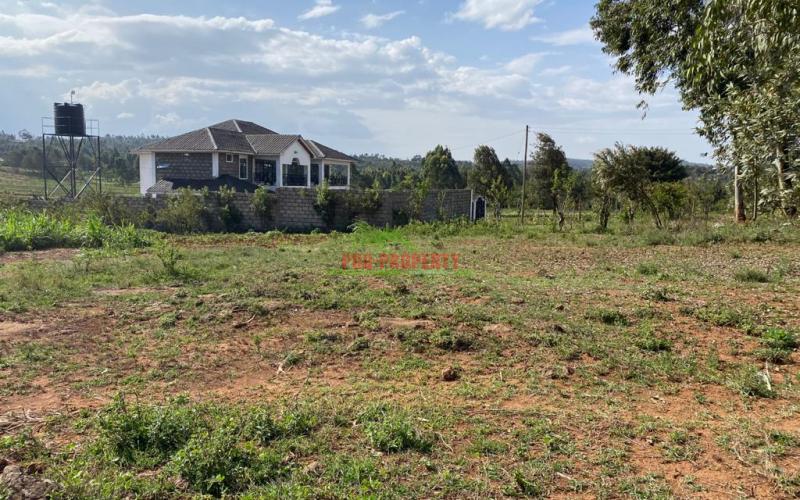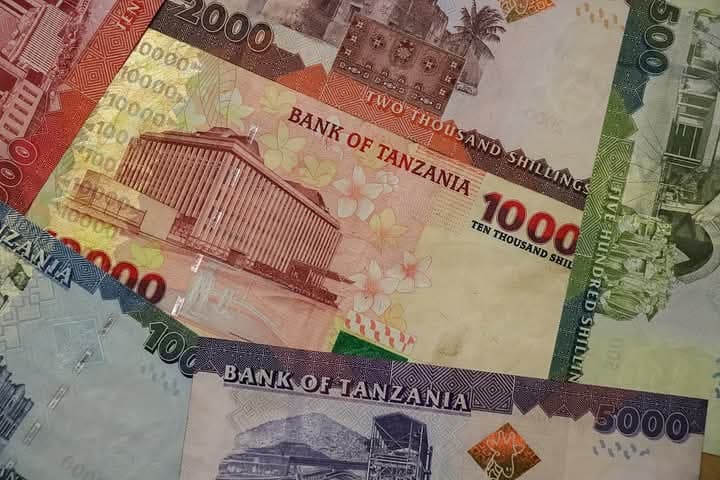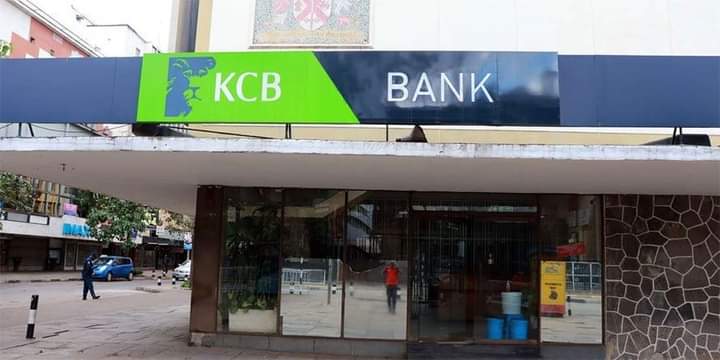Buying or selling property in Kenya involves more than just exchanging money and title deeds. Buyers, sellers, and property owners must understand various property taxes and fees. These taxes and fees affect the cost of transactions and contribute to the development of local communities and the country.
Buying land in the country can be a rewarding investment, whether you're looking to build a home, start a business, or simply hold onto the land as it appreciates in value.
However, it also involves navigating a complex legal and regulatory landscape. In this guide, we will walk you through everything you need to know about buying land in Kenya, from understanding ownership laws to verifying title deeds and financing your purchase.
Kenya recognizes several forms of land tenure, including freehold, leasehold, and communal land ownership.
Freehold tenure grants the landowner indefinite ownership, while leasehold provides land rights for a specific number of years, usually 99. Communal land is often under the control of local communities and may have unique rules governing its use and sale.
Land fraud is a significant issue in Kenya, with many buyers falling victim to con artists selling land they do not own or offering fake title deeds. To avoid scams, always verify the seller's credentials and cross-check the information provided with the Ministry of Lands.
When buying land in Kenya, the costs involved extend beyond the purchase price. It’s essential to budget for legal fees, government taxes, and other associated expenses.
Taxes You Pay as The Buyer.
1. Stamp Duty.
Stamp duty is a tax levied on written documents that transfer ownership, such as title deeds, when buying land. In land transactions in Kenya, the buyer is responsible for paying this tax.
The amount of stamp duty you’ll pay depends on the location and value of the property. Properties within municipalities such as cities and major towns attract a stamp duty rate of 4%, while properties in rural areas, outside municipalities, are taxed at 2%.
If you buy a piece of land valued at Ksh5 million in Nairobi, you’ll pay 4% stamp duty, which amounts to Ksh200,000. For a similar piece of land in a rural area, the stamp duty would be 2% or Ksh100,000.
Typically, stamp duty is unavoidable in most cases. However, there are exceptions, such as transfers between legally married couples, transfers to next of kin as inheritance, or when land is transferred to tax-exempt organisations like charitable and religious entities.
2. Title Search.
A title search is an essential step in the property purchasing process. It involves investigating the land ownership details to ensure the seller is the legitimate owner. The search also reveals if the title has any caveats or charges, such as outstanding court cases and liens, which could affect the sale.
To conduct a title search, you’ll need a copy of the land's title deed from the seller. The cost of conducting a title search is Ksh500 via online platforms like Ardhisasa or E-citizen. Alternatively, according to the State Department for Lands and Physical Planning, you can do a manual search at the land offices for free.
It’s also wise to conduct a final search after completing the transaction to confirm that the title is now in your name.
3. Title Deed Transfer and Registration Fees.
Before transferring land ownership, both the buyer and seller need clearance from the Land Control Board (LCB), which ensures that the sale is mutually agreed upon without coercion.
After reviewing the transaction, the LCB will issue a consent letter, which can take up to a month. The standard cost for LCB consent is Ksh1,000. If you need the process expedited, you may request a special sitting and pay a higher fee.
Once consent is obtained, you will need to pay title deed transfer and registration fees. These fees include a Ksh500 registration fee paid at the land registry.
An additional Ksh5,000 is charged for the final issuance of the title, although fees may vary depending on your county.
4. Land Rent.
If the property you’re buying is leasehold land, you’ll need to pay annual land rent to the government. Land rent is a levy imposed on leasehold properties, where rent is determined when the grant is issued. This payment is directed to the Ministry of Lands and Physical Planning.
The amount of land rent depends on factors such as the size, location, and demand for the land. It’s important to note that freehold land does not attract land rent, making it more appealing for some buyers. However, if you're buying leasehold land, this rent must be paid annually.
5. Valuation Fees.
Before stamp duty is calculated, the property must undergo a valuation by a government appraiser to determine its market value. You may also have to opt for an independent appraiser to ensure you’re paying a fair price for the property.
The government valuation is mandatory and costs Ksh500. An independent appraisal can range upwards of Ksh10,000, depending on the property size, location, and the appraisal company you use.
It’s also important to be aware of withholding tax, which applies to professional fees such as valuation. If you hire a third-party valuer, you are required to deduct a 5% withholding tax from their payments.
6. Legal Fees and Agent Costs.
Legal representation is essential for property transactions to ensure everything is above board. Lawyers help with contract negotiations, due diligence, and document verification. The legal fees depend on the value of the transaction, starting at 2% of the property’s value or a minimum of Ksh35,000. Additionally, a 16% VAT is charged on legal fees.
If you’re working with a real estate agent, you will also need to budget for their commission, which typically ranges from 2-5% of the sale price. Agent fees are negotiable, but it’s important to remember that withholding tax applies here, and 5% must be deducted from their fees.
Taxes You Pay as The Seller.
1. Land Rates Clearance Certificate.
Land rates are annual taxes levied by county governments based on the value of your land. The amount is typically determined by the county government, depending on the location and size of your property.
When selling your land, it is crucial to clear any outstanding balances, as buyers will need a Land Rates Clearance Certificate from the county government before completing the purchase. This certificate serves as proof that all rates, including any interest accrued, have been fully paid.
The cost of obtaining a clearance certificate varies by county. For instance, Nairobi County charges Ksh10,000 for the certificate, according to Kenya's Investment Facilitation Portal, eRegulations.
2. Partitioning or Subdivision of Land.
If you have a large plot of land but only wish to sell a portion, or you want to sell it in smaller sections, you’ll need to go through the process of partitioning or subdividing the land. This involves hiring a licensed surveyor and a physical planner to divide the land according to your requirements.
The costs associated with subdivisions vary depending on your location, the number of subdivisions, and the professionals you hire. According to the Survey (Amendment) Regulations, 2023, consultancy fees for land surveyors cost Ksh5,000 per hour, while processing and approval of mutation surveys cost Ksh600 per portion. In addition, you'll need to pay a withholding tax of 5% on the surveyor’s fees.
3. Consent and Approvals.
Before you can legally transfer land ownership, you must obtain consent from the relevant authorities. The most common consent required is from the Land Control Board (LCB), which ensures that both the seller and buyer are willingly entering into the transaction. LCB consent costs typically start at Ksh1,000.
Before transferring ownership of leasehold property, you may also need approval from the National Land Commission (NLC).
4. Valuation Costs.
Before selling your land, knowing its current market value is essential to ensure you don’t undersell or overprice it. You will need to hire a private appraiser to assess the property and provide an accurate valuation. This process helps you understand the property's worth and can be used for tax assessments and buyer negotiations.
Appraisal fees depend on the location and size of the land, and typically, you will also need to deduct a 5% withholding tax from the valuer’s fees.
5. Capital Gains Tax.
Capital Gains Tax (CGT) is a tax you must pay on the profit earned from selling property. The tax is calculated as 15% of the net gain, which is the difference between the sale and acquisition prices. This tax is payable by the seller.
There are a few exemptions from Capital Gains Tax, including transfers between spouses and transfers of inherited property.
Financing Land Purchase in Kenya.
Not everyone can afford to buy land outright, but there are various financing options available to help you acquire property in Kenya.
Bank Loans and Mortgages.
Many banks in Kenya offer land purchase loans and mortgages, which can cover a significant portion of the purchase price. The terms and conditions vary by institution, so it's advisable to shop around for the best deal.
Saccos and Cooperatives.
Savings and Credit Cooperative Organizations (Saccos) are another popular option for financing land purchases in Kenya. Saccos typically offer lower interest rates than banks, and their lending criteria are often more flexible.
Payment Plans from Developers.
Some property developers offer payment plans, allowing you to pay for the land in installments over a set period. These plans can make it easier to manage your finances, especially if you're unable to secure a loan.

Land Buying for Foreigners in Kenya.
Foreigners can buy land in Kenya, but there are some restrictions that must be understood.
Restrictions on Foreign Land Ownership.
Under the Constitution, non-citizens cannot own freehold land in Kenya. They are limited to leasehold land, with leases typically granted for up to 99 years. This restriction is designed to protect local land ownership while still allowing foreigners to invest in property.
Leasehold vs. Freehold Titles for Foreigners.
Leasehold titles are the most common option for foreigners, and they offer many of the same rights as freehold titles, except that the ownership is time-bound. Foreign buyers need to be aware of the renewal process and the implications of lease expirations.
Conclusion.
Investing in land is a rewarding venture, but it requires careful consideration and adherence to legal procedures. Whether you are a local investor or an international buyer understanding land buying process in Kenya is crucial.
The price of land in Kenya varies based on its size and location. Stamp duty is calculated at 4% of the land's value for urban areas and 2% for rural areas. It is a mandatory fee paid during the land purchase process.
Engaging a lawyer, conducting land searches, and understanding the legal process are critical steps to ensure a smooth and secure land acquisition journey.







